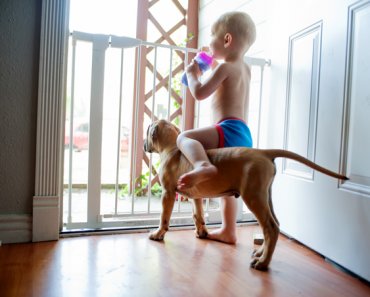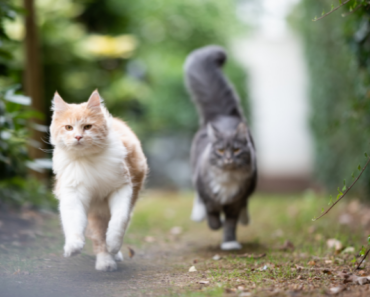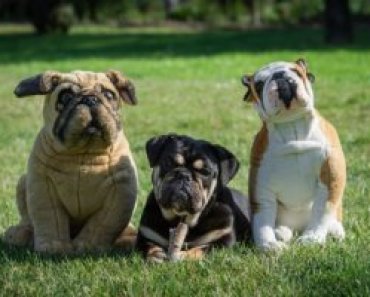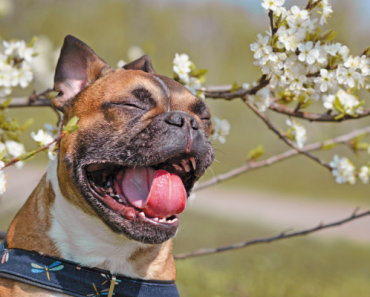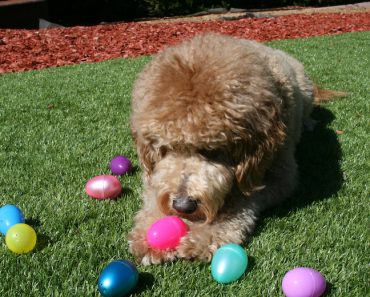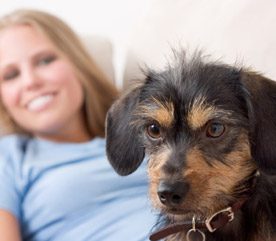
For original article click here
Reader’s Digest Canada
As pet owners, we want to make sure our furry friends are safe from harm. Here are 12 things to look out for to ensure your pet is in safe surroundings.
1 / 2

Your pet’s safety, in the house as well as outside of it, should be a top priority. Here are tips on what you can do to make their environment as safe as possible.
1. Keep electrical cords out of sight
Puppies and kitties tend to chew on electrical cords, which can cause shocks or burns. Prevent injury by tucking away cords and encasing them in a cord organizer. To prevent another pet hazard-cats pulling lamps or other appliances down on themselves-try a single cord shortener.
2. Get rid of rubber bands and strings
Rubber bands and strings are favourite playthings for cats, in particular. Yet if swallowed, these can cause pets a lot of discomfort and may have to be removed surgically. If you see a string hanging from your pet’s mouth, gently pull it out.
3. Choose plants carefully
Cats like to chew on houseplants, but many varieties, including poinsettia, can make them sick. If your cat or dog has eaten a plant and seems ill, call poison control with the correct botanical name of the plant. Better yet, don’t keep toxic plants around the house.
4. Tag your pet
Dogs and cats should always wear identification tags. Some humane societies issue a tag and keep your name on file so they can contact if the pet is found. Another option is to tag the pet with a microchip. About the size of a grain of rice, the chip is implanted beneath the pet’s skin by a veterinarian. Later, should your pet be found, the chip can be scanned by a vet, an animal control officer, or the humane society.
5. Watch out for cold cats
In cold weather, watch out for cats that may have climbed up inside your car’s wheel wells or engine compartment looking for warmth. If your cat or others in the neighbourhood have access to your car, knock on the car’s hood or honk the horn before starting the engine on wintry days.
6. Keep dogs in the shade
On hot days, it’s better to leave a dog tied up at home in the shade than to take it with you in the car. The inside temperature of car left closed in the sun can skyrocket to well over 38 degrees Celsius in 10 minutes. A dog left in the car could suffer brain damage or die from heat exhaustion. If you must leave the dog in the car, park in the shade, put the dog in a crate inside the car so that all the windows can be left open, and leave a supply of water.
2 / 2
7. Double up
When you go out, leave your pet two bowls of water. That way, if one gets knocked over in your absence, there will always be a backup.
8. Be aware of dehydration
Dehydration in pets is a serious health risk. Among the telltale signs are a dry mouth, sunken eyes, loss of skin elasticity, and exhaustion. To test for dehydration, gently pull the skin on your dog or cat’s back. If the pet is dehydrated, the skin won’t have its usual elasticity and won’t snap back. If your pet suffers from dehydration, always seek a veterinarian’s care.
9. Ensure the doghouse is comfy
A good doghouse is large enough for the dog to comfortably lie down and sit up in, yet small enough that its body heat can warm the inside. You can put hay inside for insulation, but watch for allergic reactions. Make sure that the entrance is sheltered from the wind, and that the floor is raised to prevent dampness from creeping in.
10. Clean up spilled antifreeze
Spilled antifreeze must be cleaned up immediately and completely from the garage or driveway. The scent and sweet taste can be attractive to animals, and even a small amount is enough to poison a pet.
11. Keep chocolate away from dogs
Chocolate contains theobromine, which is toxic to dogs. Just one ounce of unsweetened chocolate can cause a small dog trouble. Symptoms of chocolate poisoning include hyperactivity, heavy panting, seizures, muscle tremors, vomiting, and diarrhea. If you suspect a pet has eaten chocolate, take it straight to the vet.
12. Police those butts
Puppies can get nicotine poisoning by chewing on cigar or cigarette butts. Don’t leave ashtrays where a pooch can get to them.

